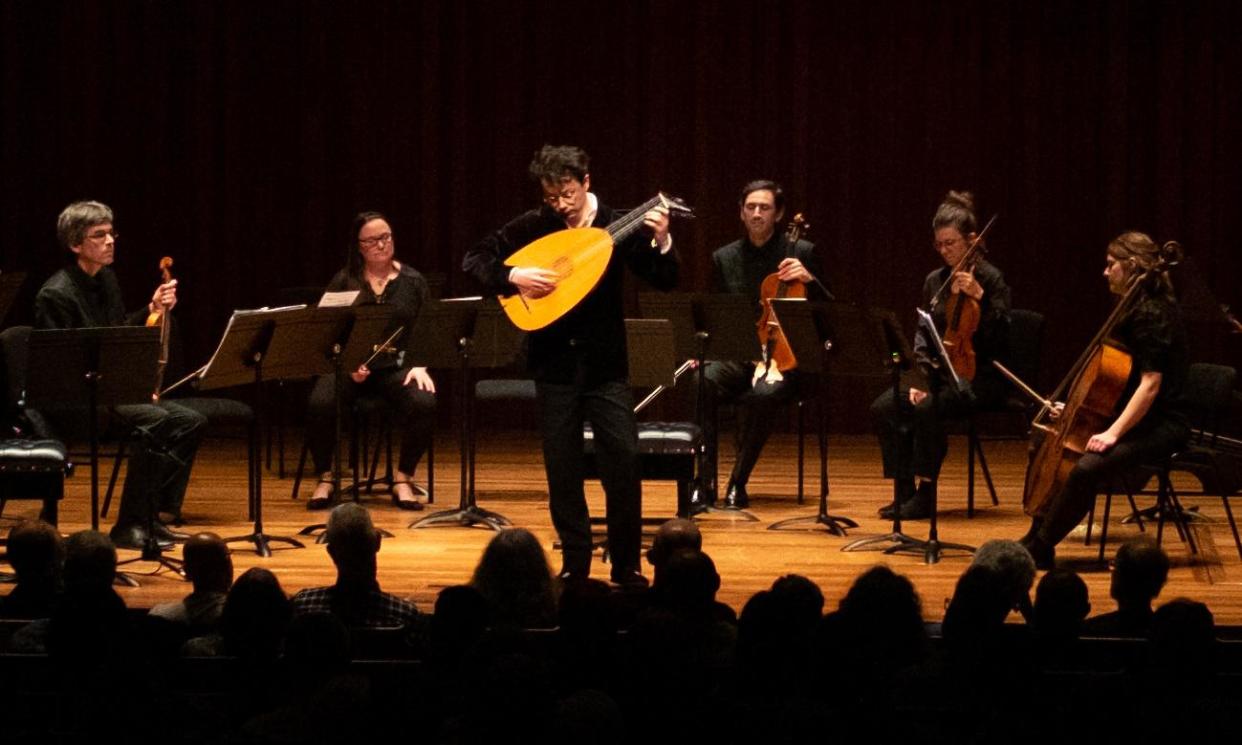Sean Shibe/Dunedin Consort/Butt review – Scottish links bring the rich and strange

The Dunedin Consort’s reputation as one of the UK’s classiest ensembles is based on its historically correct performances of baroque and classical works, with a repertoire that rarely strays beyond the end of the 18th century. But a collaboration with the guitarist Sean Shibe has taken the Dunedin well beyond its comfort zone, with a programme that begins in the Renaissance but reaches right into the 21st century, ending with the first performances of Chanter, a specially commissioned work for guitar and strings by Cassandra Miller.
Like much of Miller’s output, Chanter is based on existing music, in this case a Scottish air as played on the smallpipes by Brìghde Chaimbeul. Miller played Chaimbeul’s performance of the air to Shibe, had him repeatedly sing it back to her and recorded the results. From those recordings she made her own transcriptions, which became the basis of the 25-minute work, though the source material hardly appears in recognisable form in the finished concerto. Tiny phrases and occasional cadences occasionally seem to hint at it, but the work unfolds more like a series of gently rocking meditations, lullabies almost, in which neither the guitar nor the string orchestra ever raises its voice.
Related: Deep listening: the haunting sonic world of Cassandra Miller
The premiere was preceded by three other contemporary pieces, also conducted by Dunedin’s music director John Butt: James MacMillan’s From Galloway, in an arrangement for guitar and strings, two movements from David Fennessy’s strikingly fresh and imaginative Rosewoods, and Linda Catlin Smith’s strings-only Sinfonia, a shimmering succession of meshing chords from which occasional tendrils of melody emerge.
The Scottish links ran right through the programme. Shibe began with a sequence of pieces for lute from the Straloch and Rowallan manuscripts, showing that he is just as special and compelling a performer on that instrument as he is a guitarist, able to make something rich and strange out of the simplest melody. The Dunedin strings joined him for John Dowland’s Seaven Teares, and then, on their own, played pieces by Purcell and a Geminiani sonata for two violins, whose source material just happened to be a traditional Scottish song.

 Yahoo News
Yahoo News 
